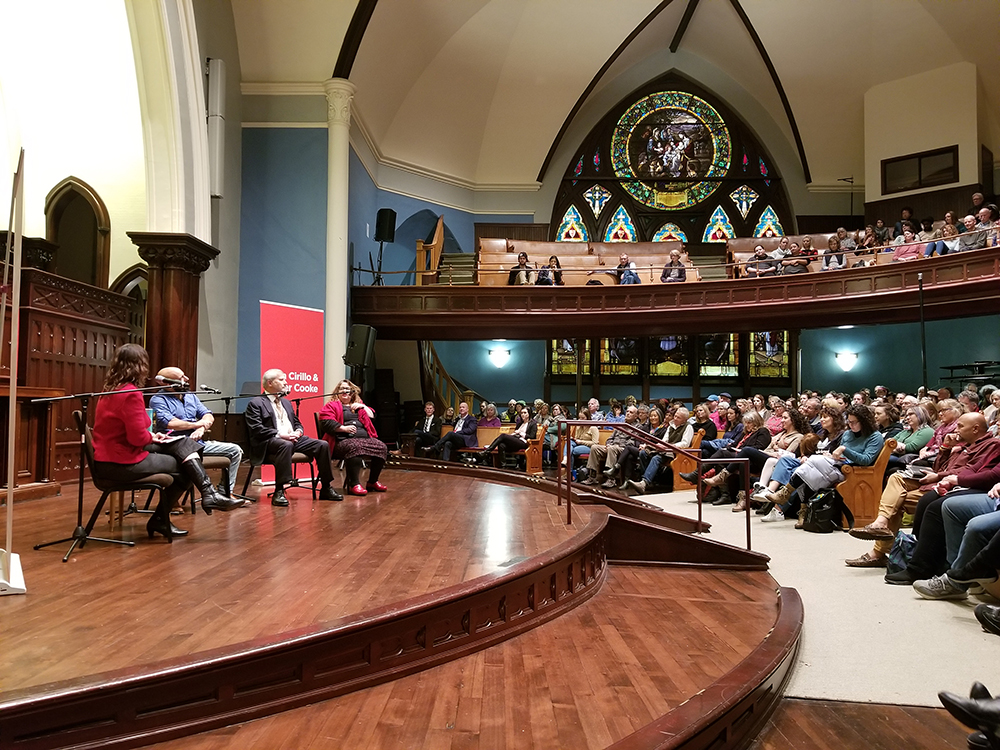Thelonious “Monk” Ellison, a cranky middle-aged English literary professor, lives an isolated life at his college, away from his family as well as the major literary agencies. However, he is not satisfied or peaceful in his lonely world. His books do not sell, at least as much as he hopes, and they don’t stand on the “correct” shelves in bookstores. The big publishers would prefer for him to conform to their stereotypes and write something “black.” At the start of the film, when Monk talks with his literary agent, you can tell he is exhausted from frustration: “I’m black, and it’s my book. I don’t believe in race!” Yet everyone else does.
With five Oscar nominations, the director Cord Jefferson has garnered tremendous attention with this, his first movie, American Fiction. It’s an adaptation of the novel Erasure by Percival Everett. On March 10th, the film could be selected for this year’s best picture. It’s also up for best-adapted screenplay and most original score. Jeffrey Wright, who plays Monk, is nominated for best actor, with Sterling K. Brown, playing Monk’s brother, picking up the nomination for best-supporting actor. Whether the film wins or not, Cord Jefferson has effectively jumped fully into the movie world from only having experience directing TV series.
The movie is an excellent addition to satire that carries both anger and frustration. It’s a comedy that made me laugh from beginning to end, perhaps because of being in literature myself. But also, it comes with a truth. The film highlights a type of subtle white racism by revealing their biased expectations of African Americans. It exposes the hypocrisy of the white gatekeepers of literature, who use stereotypical black figures simply to sanctify themselves. The film criticizes their lack of sincerity in African Americans’ wellbeing.
Briefly suspended from his job teaching for his aggressive behavior, Monk, who does not hesitate to argue with other writers and students, ends up at a literary festival in Boston and hears a name he never liked: Sintara Golden! The female black author who gives publishers what they really want – something to fit their prejudiced stereotypes. Her book We’s Lives in Da Ghetto has become a bestseller. In the scene where Thelonious stands and listens to Golden’s speech while analyzing the readers’ reactions is a turning point for him. The expression of his disappointment shows everything going on in his mind. Monk never reads her book. However, he reads the reviews, and he understands that publishers want “urgent,” “raw,” and “painfully real” fiction, not high-quality literature.
One night, while trying to write, Van Go, a fictional young, uneducated, poor gang member character, comes into his imagination with an old man and starts a fight. The film depicts the writer along with his two characters together on stage. Monk watches them and talks with them. Sometimes, they don’t like the dialogue he’s given them and criticize the author. So, he rewrites it again. Finally, the sirens of ambulances mix with their dialogue, and gunshots take their expected place at the end of the book. The scene where the fictional characters come to the author’s room and converse with him is one of the film’s best. Monk quickly hammers out My Pafology as a spoof and sends it to literary agents under a pseudonym. This stunt gets the attention of literary agencies and filmmakers, earning Monk more money than anything else he’d ever done. However, it doesn’t bring happiness to the author’s life.
Throughout the movie, we see three writers competing against each other. Sitara Golden with her bestseller, Monk’s previous works, and his shadow self’s new book My Pafology. As a serious literary writer, he hates it and refuses to accept it as a part of himself. Monk runs from his alias whenever possible. Yet, with bills waiting to be paid and his mother with Alzheimer’s needing care, he accepts the millions of dollars offered upon his doorstep.
The audience is left with three different endings. Do you want a moral lesson and a confession, an ending with blood and death, or something romantic? Wiley Valdespino, one of the movie’s characters, preferred the bloody scene, but the audience still has their own choice. It’s your choice. And, Monk, I’m ready to read all your books. You killed it, bro!





